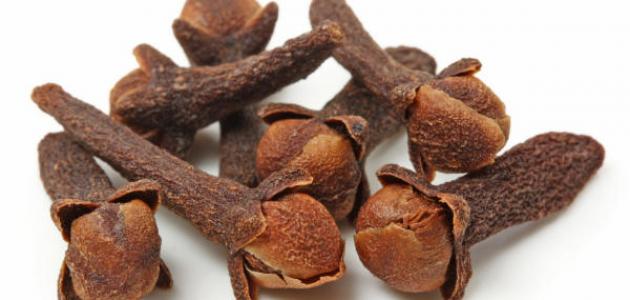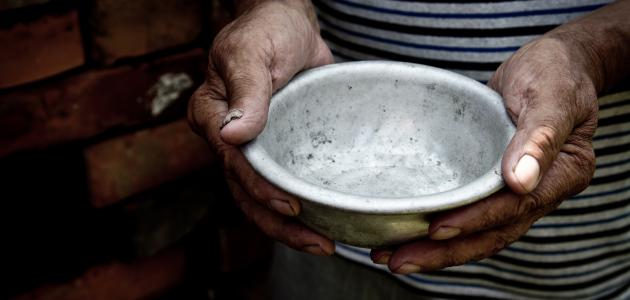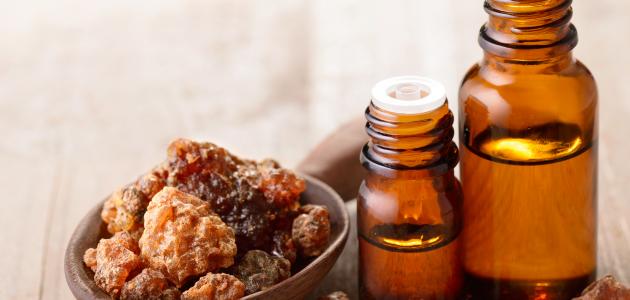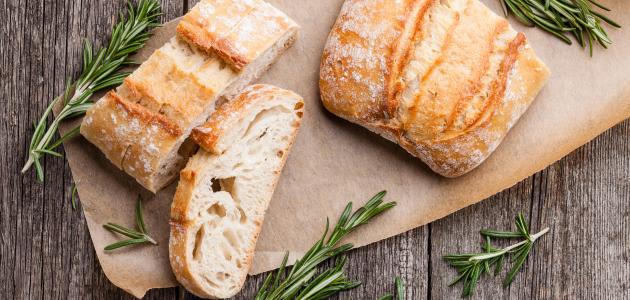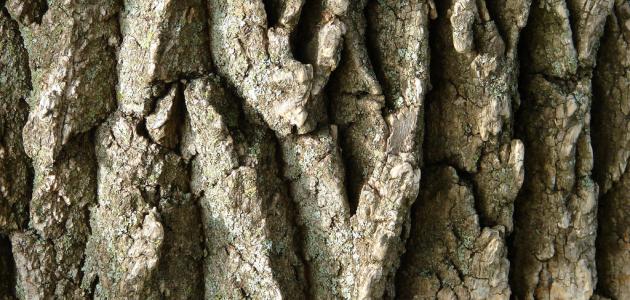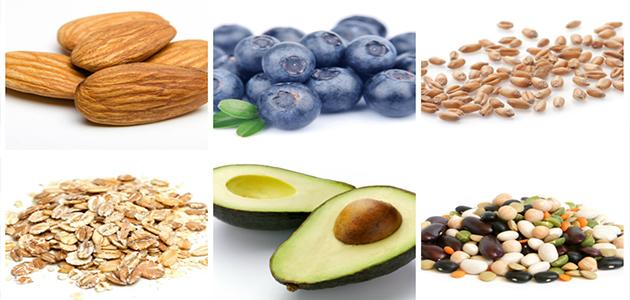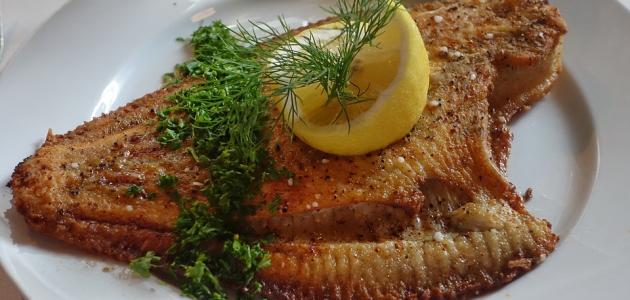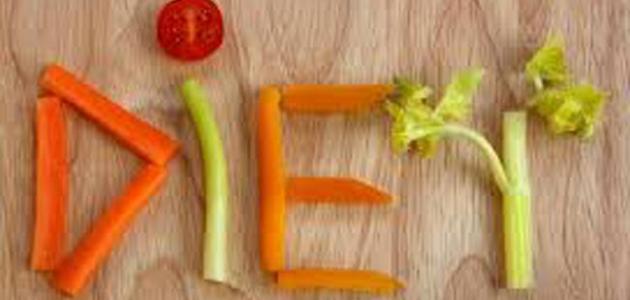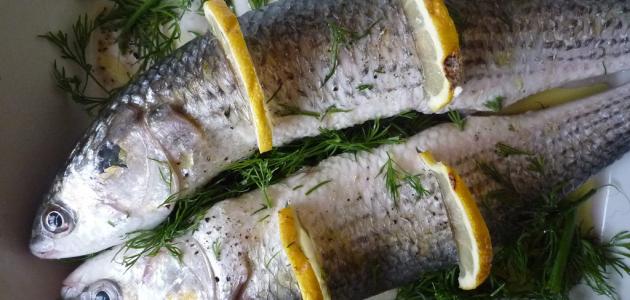Contents
Cloves
Clove (scientific name: Syzygium aromaticum), or what is also known as clove, or oyde, or nail, which belongs to the Asiatic family , and is a flower bud is dried taken from the aromatic and evergreen clove tree , Which reaches a length of 20 meters, as it contains clusters of bright red flowers at the ends of the branches, in addition to its large leaves, which are red, and then turn into a dark green color upon maturity, while its full fruits are distinguished by their rectangular shape, Its color is red, which contains one or two seeds, while the pink buds of cloves are dried and used as a kind of spice in the preparation of many foods, either in their whole form or after grinding. Where the whole form of cloves is usually used in cooking meatAnd prepare syrup, while ground cloves are used in baking, perfumery, and some medicinal purposes. [1] [2]
The nutritional value of cloves
The following table shows the nutrients present in 100 grams of ground cloves: [3]
| The nutrient component | Nutritional value |
|---|---|
| water | 9.87 milliliters |
| Calories | 274 calories |
| Carbohydrates | 65.53 grams |
| Sugars | 2.38 g |
| Dietary fiber | 33.9 grams |
| Protein | 5.97 grams |
| Fats | 13 grams |
| Calcium | 632 milligrams |
| Iron | 11.83 milligrams |
| magnesium | 259 milligrams |
| Phosphorous | 104 milligrams |
| Potassium | 1020 milligrams |
| Sodium | 277 milligrams |
| Zinc | 2.32 milligrams |
| Copper | 0.368 milligrams |
| Manganese | 60,127 mg |
| Selenium | 7.2 milligrams |
| vitamin C | 0.2 milligram |
| Vitamin B1 | 0.158 milligram |
| Vitamin B2 | 0.22 milligrams |
| Vitamin B3 | 1.56 milligrams |
| Vitamin B5 | 0.509 milligrams |
| Vitamin B6 | 0.391 milligrams |
| Folate | 25 micrograms |
| Choline | 37.4 milligrams |
| Vitamin A | 160 international units |
| Beta-carotene | 45 micrograms |
| Vitamin E. | 8.82 milligrams |
| Vitamin K. | 141.8 micrograms |
Benefits of cloves
Its content of nutrients
Cloves contain some nutrients, which we mention the following:
- Minerals and vitamins: A teaspoon of ground cloves provides 30% of the recommended daily amount of manganese, which is essential for bone health, and it also provides 4% of the recommended daily amount of vitamin K and 3% of vitamin C. In addition to containing small amounts of magnesium, calcium, and vitamin E, it is also a good source of fiber. [4]
- Antioxidants: Cloves are rich in antioxidants. They are compounds that reduce oxidative stress, which may contribute to an increased risk of chronic diseases , [5] as cloves contain phenolic compounds. Such as: phenolic acids such as gallic acid, in addition to tannins , one of the types of flanols called Flavonol glucosides, and some volatile phenolic oils; Acetyl eugenol and eugenol; Which is the main bioactive compound in cloves, which is responsible for anti-fungal activity, and it also inhibits the growth of microorganisms on food surfaces, which makes cloves a food preservative, according to a review published in the Asian Pacific Journal of Tropical Biomedicine in 2014.[6]
- A laboratory study published in Methods in molecular biology in 2010 indicated that eugenol reduces oxidative damage caused by free radicals by 5 times more than alpha-tocopherol (in English: α-Tocopherol). It is one of the types of vitamin E that is an antioxidant. [5] [7]
Scientific studies on the benefits of cloves
The following is a mention of some studies that have been conducted on the benefits of cloves:
- Preliminary study published in the Journal of Medicinal Food magazine in 2014, which was conducted on mice suffering from the disease , fatty liver It was noted that the essential oil of cloves emulsifier Hassan inflammation indicators , levels of fat in the blood and liver, and oxidative stress, And liver function, in addition to reducing the risk of developing cardiovascular disease, and other complications of fatty liver disease. [8]
- The other preliminary animal study published in the Journal of Cancer Prevention magazine in 2014 that the rich Balougenol in cloves damped the proliferation of liver cells, and reduced oxidative stress, which may contribute to reducing the risk of cirrhosis of liver , [ 9] The antioxidant content of cloves can also reduce the risk of liver disease by reducing oxidative stress, but it should be noted that large amounts of eugenol are toxic. [5]
- A preliminary study, conducted on mice and published in the journal Natural Product Research in 2012, found that the hydroalcoholic extract found in dried clove buds reduces the risk of osteoporosis due to hypogonadism through Maintaining bone health, [10] As mentioned previously, cloves are rich in manganese, which is involved in bone formation, and is important for maintaining their health, but more studies are still needed to confirm this effect. [5]
Benefits of cloves for diabetics
The following is a mention of the results of some studies conducted on the benefits of cloves for diabetics:
- A preliminary study in mice, published in the Journal of medicinal food in 2017, indicated that the use of clove extract and the compound nigricin it contains alleviate insulin resistance and its symptoms . It increased the ability of muscle cells to use glucose, and it also increased glucose tolerance, glucose-stimulated insulin secretion , and beta-cell function in diabetic mice. Reduce insulin resistance . [11]
- A preliminary study conducted on diabetic mice and published in the journal Food Chemistry in 2010 indicated that consuming cloves decreased blood sugar levels and oxidative tissue damage caused by hyperglycaemia , and increased lipid peroxidation. On the use of a chemical called streptozotocin , by restoring the anti-oxidant enzymes to their normal levels, and cloves also inhibited the development of cataracts . [12]
Benefits of cloves for immunity
A preliminary study published in the Journal of Clinical Medicine in 2018, which was conducted on mice infected with Salmonella typhimurium, found that clove leaf extract increased the proliferation of lymphocytes , lymphocytes and lymphoblasts . Macrophages, [13] and a laboratory study published in the Research Journal of Medicinal Plant in 2015 indicated that eugenol, the most active compound in cloves, improved the immune response that includes anti-inflammatory effects. [14]
Benefits of cloves for the stomach
A preliminary animal study published in the journal Naunyn-Schmiedeberg's archives of pharmacology in 2011 and conducted on animals indicated that clove oil and its eugenol content have an activity that reduces stomach ulcers and stimulates the production of mucus that is important for maintaining a healthy stomach, which contributes In improving people with this ulcer, more studies are still needed to confirm this effect. [15]
Benefits of cloves for men
A preliminary study published in the journal BMC Complementary and Alternative Medicine in 2004 and conducted on male rats indicated that using clove ethanol extract at a concentration of 50% increased their sexual activity without causing stomach ulcers or any negative side effects, but there is still a need to confirm The results of these studies in humans. [16]
Damage to cloves
The degree of safety of cloves
Eating cloves in small quantities is often safe for most people, but there is insufficient information about the degree of safety of eating them in large quantities, and it should be noted that dried cloves may cause sensitivity and irritation in the mouth, in addition to damage to dental tissues, but for children, consuming clove oil Often considered unsafe ; As it may cause some severe side effects; Such as: liver damage, seizures, and fluid imbalance in the body. As for its consumption during pregnancy and breastfeeding , eating cloves in small quantities is often considered safe , but there is no information about the degree of safety of eating it in large quantities, and therefore it is preferable to avoid consuming it during these two periods. [17]
Precautions for using cloves
The mention comes to some cases which must caution when using cloves: [18]
- People with bleeding disorders: , where clove oil contains a chemical called eugenol ; These may slow the process of blood clotting, which could cause bleeding in people with bleeding disorders.
- Those undergoing surgeries: The eugenol present in cloves can cause bleeding during or after the surgery, so you should stop consuming cloves at least two weeks before the surgery.
Pharmacological interaction of cloves
Eating cloves can interfere with anti-blood-clotting drugs (Anticoagulant) and anti-platelet drugs (Antiplatelet) to a small degree , and therefore you should consult your doctor and be careful not to consume them together. This may be associated with an increased risk of bleeding and bruising . This is due to its eugenol content; Examples of these drugs are: Aspirin (Aspirin), Warfarin , Diclofenac , Ibuprofen , Naproxen (Naproxen), Clopidogrel and Clopidogrel . ) and Heparin . [19]
Clove damage to the liver
Eating clove oil by children can cause liver damage, in addition to convulsions and other symptoms. Therefore, it is advised not to give children any nutritional or herbal supplement without consulting a doctor. [20] As for consuming cloves in general in quantities. Moderate, it is considered safe, [17] and may enhance the health of the liver, as mentioned previously according to studies conducted on mice. [8]
What is clove oil and what are its benefits
The clove oil from the essential oils that are extracted from the trees of cloves, through the distillation of dried flower buds that are taken from the trees of cloves, can also be used leaves and stems to extract the oil, and the color ranges clove oil between light and colorless yellow color, which is characterized by flavor strong pungent, [ 21] As previously mentioned, clove oil contains eugenol, which has an effect as a narcotic and anti-bacterial, in addition to that clove oil is anti-inflammatory and anti-fungal [22] In addition, it may cause some of the previously mentioned harms. [18] [17] [20]
Common questions about cloves
What are the benefits of cloves for pressure
There are no scientific studies that indicate that eating cloves reduces blood pressure .
What are the benefits of cloves for shortness of breath and asthma
There are no studies that indicate that the use of cloves may be beneficial for improving respiratory problems and asthma .
Is clove good for acidity?
There are no studies that indicate that cloves are used to reduce stomach acid .
What are the benefits of cloves for pregnant women
There are no studies that indicate that cloves have special benefits during pregnancy , and as we mentioned previously, a pregnant woman should eat it in moderate amounts of food, and not eat it in large quantities. [19]
Is clove useful for menstruation
There are no studies that indicate that cloves are used to relieve menstrual symptoms .
Is clove useful for slimming?
A preliminary study published in Food & Function in 2017 on mice found that clove extract reduced the risk of obesity resulting from eating a high-fat diet, as well as reduced weight, stomach and liver fat. [23] [24]
References
- ↑ Cynthia Gladen, "Cloves" , www.lib.umn.edu , Retrieved 24-3-2020. Edited.
- ↑ (L.) Merr. LMPerry And, "Syzygium Aromaticum - (L . )" , Www.pfaf.org , Retrieved 24-3-2020. Edited.
- ↑ "Spices, cloves, ground" , www.fdc.nal.usda.gov , 1-4-2019, Retrieved 24-3-2020. Edited.
- ↑ Cathy Wong (9-10-2019), "The Health Benefits of Cloves" , www.verywellhealth.com , Retrieved 3/28-2020. Edited.
- ^ A b t w Rachael Link (11-3-2020), "8 Surprising Health Benefits Of Cloves" , Www.healthline.com , Retrieved 28-3-2020. Edited.
- ↑ Diego Cortés-Rojas, Claudia Souza, and Wanderley Oliveira (2-2014), “Clove (Syzygium aromaticum): a precious spice” , Asian Pacific Journal of Tropical Biomedicine , Issue 2, Folder 4, Page 90-96. Edited.
- ↑ Enika Nagabu, Joseph Rifkind, Lakshmaiah Nakka, and others (2010), “Assessment of Antioxidant Activities of Eugenol by in Vitro and in Vivo Methods” , Methods in molecular biology , Page 165-180. Edited.
- ^ A b Sahar Al-Okbi, Doha Mohamed Mohamed 's , Thanaa (s) Hamed, And Others (2014), "Protective Effect Of Clove OIL And Eugenol Microemulsions On Fatty Liver And Dyslipidemia color : as the Components Of Metabolic Syndrome type " , Journal Unit Of Medicinal Food , Issue 7, the Folder 17, Page 764-771. Edited.
- ↑ Shakir Ali, Ram Prasad, Omer Kucuk, and others (2014-12), “Eugenol-rich Fraction of Syzygium aromaticum (Clove) Reverses Biochemical and Histopathological Changes in Liver Cirrhosis and Inhibits Hepatic Cell Proliferation" , Journal of Cancer Prevention , Issue 4, Folder 19, Page 288-300. Edited.
- ↑ Subhra Karmakar, Monalisa Choudhury, Asankur Das, and others (2012), “Clove (Syzygium Aromaticum Linn) Extract Rich in Eugenol and Eugenol Derivatives Shows Bone-Preserving Efficacy” , Natural Product , Issue 6, Folder 26, Page 500- 509. Edited.
- ↑ Safina Ghaffar, Shabbir Afridi, Meha Aftab, and others (4-2017), “Clove and Its Active Compound Attenuate Free Fatty Acid-Mediated Insulin Resistance in Skeletal Muscle Cells and in Mice” , Journal of medicinal food , Issue 4, Folder 20, Page 335-344. Edited.
- ↑ Radhiah Shukri, Mohamed Mohamed 's Suhaila, And Signature Mustapha Noordin (15-10-2010), "The heart 's Cloves Protect, Liver And Lens Of Diabetic Rats" , Food Chemistry , Issue 4, 122 the Folder, 1116-1121 . Page. Edited.
- ↑ Syahran Wael, Theopilus Watuguly, Ine Arini, and others (12-2018), "Potential of Syzygium aromaticum (Clove) Leaf Extract on Immune Proliferation Response in Balb / c Mice Infected with Salmonella typhimurium" , Clinical medicine , Issue 7, Folder 12, Page 613-627. Edited.
- ↑ Djaja Rusmana, Mariska Elisabeth, Wahyu Widowati, and others (2015), “Inhibition of Inflammatory Agent Production by Ethanol Extract and Eugenol of Syzygium aromaticum (L.) Flower Bud (Clove) in LPS-Stimulated Raw 264.7 Cells" , Research Journal of Medicinal Plant , Issue 6, Folder 9, Page 264-274. Edited.
- ↑ José Santin, Marivane Lemos, Luiz Klein-Júnior, and others (2-2011), “Gastroprotective Activity of Essential Oil of the Syzygium Aromaticum and Its Major Component Eugenol in Different Animal Models” , Naunyn-Schmiedeberg's archives of pharmacology , Issue 2 , Folder 383, Page 149-158. Edited.
- ↑ Tajuddin, Shamshad Ahmad, Iqbal Qasmi, and others (5-11-2004), “Effect of 50% ethanolic extract of Syzygium aromaticum (L.) Merr. & Perry. (Clove) on sexual behavior of normal male rats” , BMC complementary and Alternative medicine , Issue 1, Folder 4, Page 1-7. Edited.
- ^ A b t "CLOVE" , the www.webmd.com , Retrieved 24-3-2020. Edited.
- ^ A b "Clove" , Www.medicinenet.com , 17-9-2019, Retrieved 24-3-2020. Edited.
- ^ A b "CLOVE" , Www.rxlist.com , Retrieved 24-3-2020. Edited.
- ^ A b Cerner Multum (24-2-2020), "Clove" , Www.drugs.com , Retrieved 28-3-2020. Edited.
- ↑ Jill Seladi-Schulman (9-9-2019), “What You Need to Know About Clove Essential Oil , ” www.healthline.com , Retrieved 28-3-2020. Edited.
- ↑ Amanda Barrell (19-3-2018), "Is clove oil effective for toothache?" , Www.medicalnewstoday.com The , Retrieved 28-3-2020. Edited.
- ↑ Megan Metropulos (30-1-2018), “Cloves: Nutritional facts and health benefits” , www.medicalnewstoday.com , Retrieved 3-28-2020. Edited.
- ↑ Yiran Ding, Zhennan Gu, Yihe Wang, and others (2017), “Clove Extract Functions as a Natural Fatty Acid Synthesis Inhibitor and Prevents Obesity in a Mouse Model” , Food & function , Issue 8, Folder 8, Page 2847-2856 . Edited.
